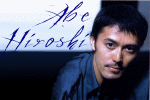 |
 |
 |
 |
|
 |
 |
 |
 |
 |
amrayu

Joined: 15 Jul 2003
Posts: 582
Location: san francisco, USA
Country: 
 |
 Posted: Thu Jun 23, 2005 5:53 am Post subject: Posted: Thu Jun 23, 2005 5:53 am Post subject: |
  |
|
| dochira wrote: |
I think it depends on the consonant that precedes it:
For example, hyaku (100).
200 = nihyaku
300 = sanbyaku or sambyaku
400 = yonhyaku
...
800 = happyaku |
Yes, there's a rule for it. I learned it in japanese class also. 
|
|
| Back to top |
|
 |
|
|
 |
 |
 |
 |
 |
kokuou

Joined: 04 Jun 2004
Posts: 506
Location: Canada
Country: 
 |
 Posted: Thu Jun 23, 2005 10:24 am Post subject: Posted: Thu Jun 23, 2005 10:24 am Post subject: |
  |
|
| niko2x wrote: | | well, if you are going to school for that, then i guess the proper keigo for that would prolly be biki. me, i just speak casual JP, and no keigo. |
It has nothing to do with keigo.
It has to do with phonetics, as nikox2 said. However, it DOES matter if it's 'biki' or 'piki'.
Don't get me wrong, people will still understand you, but that's like a Japanese person saying, "It doesn't matter if you use an L or an R, they're the same."
For the record, the following is used when you have 'hiki' or any other 'h' counter:
�����҂��@ippiki
�ɂЂ� nihiki
����т� sanbiki
���Ђ� yonhiki
���Ђ� gohiki
����҂� or �낭�Ђ� roppiki or rokuhiki
�ȂȂЂ� or �����Ђ� nanahiki or shichihiki
�͂��҂� or �͂��Ђ� happiki or hachihiki
���イ�Ђ� kyuuhiki
������҂� or ���イ�Ђ� juppiki or juuhiki
*note* Where there are two pronunciations, the former is by far the more popular coloquially. You may hear the others, but for the most part, people use the first in the set.
HTH,
������
_________________
"I like the word 'indolence'. It makes my laziness seem classy."
-Bern Williams
|
|
| Back to top |
|
 |
|
|
 |
 |
 |
 |
 |
neoshi

Joined: 16 Jun 2005
Posts: 20
Location: 415/408
 |
 Posted: Thu Jun 23, 2005 3:05 pm Post subject: Posted: Thu Jun 23, 2005 3:05 pm Post subject: |
  |
|
| amrayu wrote: |
Yes, there's a rule for it. I learned it in japanese class also.  |
415 ey... where in sf? wouldn't happen to be takemoto sensei or fukuda sensei would it? haha then again chances are very slim [of the forementioned]
|
|
| Back to top |
|
 |
|
|
 |
 |
 |
 |
 |
|
 |
 |
 |
 |
 |
amrayu

Joined: 15 Jul 2003
Posts: 582
Location: san francisco, USA
Country: 
 |
 Posted: Wed Jun 29, 2005 2:22 am Post subject: Posted: Wed Jun 29, 2005 2:22 am Post subject: |
  |
|
| neoshi wrote: |
415 ey... where in sf? wouldn't happen to be takemoto sensei or fukuda sensei would it? haha then again chances are very slim [of the forementioned] |
I took Japanese in various places (Lodi - High school, Stockton - Community College, San Francisco - SFSU, Japan - if you count visiting  ). ).
|
|
| Back to top |
|
 |
|
|
 |
 |
 |
 |
 |
|
 |
 |
 |
 |
 |
arglborps

Joined: 15 Apr 2005
Posts: 20
Location: Tokyo, Japan
Country: 
 |
|
| Back to top |
|
 |
|
|
 |
 |
 |
 |
 |
mvc
Joined: 22 Dec 2002
Posts: 395
Location: United States
Country: 
 |
|
| Back to top |
|
 |
|
|
 |
 |
 |
 |
 |
gaijinmark

Joined: 13 Apr 2007
Posts: 12121
Location: It was fun while it lasted.
Country: 
 |
 Posted: Mon Oct 28, 2013 10:18 pm Post subject: Posted: Mon Oct 28, 2013 10:18 pm Post subject: |
  |
|
| niko2x wrote: | counting is may be difficult for foreigners to comprehend (i hope that don't sound to condiscending) because diffrent things may be counted differently, case in point:
if you're gonna be counting long things (such as pencils, chopsticks, etc.) it would be ipon, nihon, sampon... (1, 2, 3,...)
if you were to count thin, flat things (such as paper, seeweed, etc) it would be cound as: ichi-mai, ni-mai, sanmai...
if you're gonna be counting animails, it would be: ipiki, nipiki, sampiki...
these are just a few other examples.
- niko |
I saw this article in Japan Times and to quote Homer Simpson, "It's funny because it's true.":http://www.japantimes.co.jp/life/2013/10/27/language/taking-count-of-the-sufficiency-of-japanese-suffixes/
|
|
| Back to top |
|
 |
|
|
 |
 |
 |
 |
 |
junny

Joined: 12 Jul 2011
Posts: 527
 |
 Posted: Tue Oct 29, 2013 7:58 pm Post subject: Posted: Tue Oct 29, 2013 7:58 pm Post subject: |
  |
|
Heh, it's a good read. I got a kick out of recognising some of the kanji.
_________________
|
|
| Back to top |
|
 |
|
|
 |
 |
 |
 |
 |
|
 |
| |
 |
|
|
You cannot post new topics in this forum
You cannot reply to topics in this forum
You cannot edit your posts in this forum
You cannot delete your posts in this forum
You cannot vote in polls in this forum
|
|